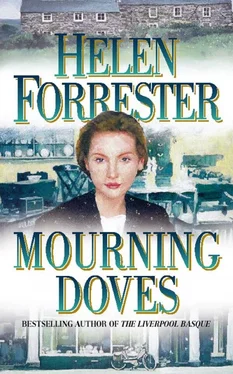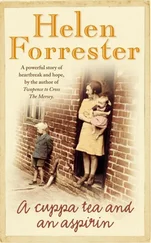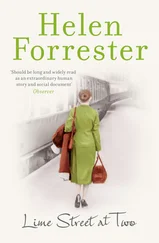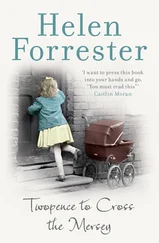‘Times have changed, Mother. Ladies-in-waiting go about a lot more than they used to do.’
‘A true gentlewoman would not!’ The remark sounded so much more like her mother’s usual disapproval of Phyllis that Celia was quite relieved. Louise had disapproved of Phyllis ever since she had first appeared at the front door, when she was nine years old, to ask if Celia could come out to play hopscotch. In Louise’s opinion, the daughter of a carriage builder – a tradesman – was no companion for the granddaughter of a baronet and daughter of a prominent businessman in commerce. The girls had, however, clung to each other. Both were lonely and shy, great bookworms, and were over-protected – Phyllis because she was a precious only child and Celia because she was to be kept at home as a companion-help. Neither was allowed to mix very much with other children.
Celia let her mother cross the passage to the bathroom, and then ran lightly down the stairs, to be enveloped – as far as was possible – in her friend’s arms.
With a toddler clinging to her hand, Phyllis greeted her friend tenderly. ‘I’m so sad for you and for Mrs Gilmore. It must be terrible for you.’
‘Thank you, dear. How are you?’
The inquiry did not need a reply. Phyllis was her usual untidy self. Her hair below her wide-brimmed beige hat was threatening to fall down her back at any minute, and her face was drained of colour, except for black rings round her tired eyes. Her long black skirt, which had dog hairs on it, half-covered her swollen ankles. To disguise her pregnancy, she wore an out-of-fashion cheviot cape of her mother’s which barely met across her swollen stomach.
Phyllis simply grimaced in response to Celia’s mechanical inquiry, and then shrugged as if to convey that her well-being was of no consequence.
Celia went down on her knees to ask the toddler, ‘And how’s little Eric today?’
Eric turned away from her and buried his grubby, marmalade-smeared face in his mother’s skirt. Celia smiled and patted his flaxen head as she got up again.
‘Come into the breakfast room. There’s a good fire there. Dorothy hasn’t done the sitting room yet.’
Phyllis sighed with relief as she sank into Louise’s favourite chair. It was upholstered in faded green velveteen and was armless, which allowed space for the stout or pregnant to spread their skirts comfortably around them. She remarked with feeling, ‘I shall be thankful when my little burden arrives.’
‘It can’t be long now, can it?’ Celia asked. Though Phyllis had explained to her how dreadfully vulgar were the things a husband did to you which led to having a baby, Celia had never liked to inquire how long it took the baby to grow.
‘Any time now, the midwife thinks. This morning she advised that I should stay close to home.’ She shifted uneasily in her chair, and then went on, ‘You always get hours of warning, though, so I thought I should squeeze in a visit to you. You and Mrs Gilmore must be absolutely devastated.’
Celia nodded. She did not know how to explain what she was feeling, because after her little talk with Winnie in the basement kitchen she had sensed in herself a stirring of relief.
She had realised suddenly that she was not grieving for her father so much as she was upset at her own lack of competence in dealing with the disarray he had left behind him. He had been very hard to live with; and she had to admit that she had not, in the past week, missed his hectoring voice criticising some alleged fault in her behaviour.
To cover her confusion at Phyllis’s remark, she glanced round to check on little Eric.
She saw that he had discovered one of the household cats asleep on what had been Timothy Gilmore’s chair. He was nuzzling into the animal’s long black fur. It seemed to be tolerating him quite well, so she asked Phyllis if she was comfortable in the chair in which she was sitting. Having been assured ruefully that she was – as far as it was possible to be comfortable in her situation – Celia asked, ‘How many babies do you want to have, Phyllis?’
Phyllis laughed. She said cynically. ‘I don’t have any say in the matter. They simply come.’
‘Does it hurt?’
‘Yes – and it makes you so tired afterwards and you want to cry a lot. And husbands don’t like that, of course.’ Phyllis winced under her breath and straightened her back.
Celia drew a stool towards the fire, so that she could sit close to her friend. ‘Perhaps, when Mr Woodcock progresses in his career, you will be able to have a nanny as well as your maid?’ she suggested. She leaned forward to tug at the bell pull hanging beside the fireplace, to call Dorothy and ask her to bring some coffee.
Phyllis slowly drew off her black gloves, as she replied, ‘I hope so.’
Long ago, she had, when Celia had asked her, told her frankly the basic facts of sexual intercourse and that it was a right of a man to demand it of his wife. Poor Phyllis had gone into her marriage totally ignorant of what it implied, and had been so shocked and her husband so clumsy that she had never enjoyed it. She endured it as best she could – and the babies came, and her husband grew ever more irritable and hard to live with. Neither she nor Celia, therefore, had any idea that intercourse could be pleasurable. It was popular to coo over babies and forget what went beforehand.
Celia did not know the details of Phyllis’s marriage, but she did understand that her friend was worn out and unhappy, and she had long since begun to think that marriage was not quite the happy state that girls were told it was.
If one had an income of one’s own, she had considered, it would be pleasanter to remain single – except that one could not have a baby, and she herself would love to have just one, like little Eric.
Phyllis returned to the reason for her visit. ‘How is Mrs Gilmore?’ she asked.
‘She seems more herself this morning, a little less exhausted.’
‘I was horrified to see the For Sale notice on your gate. Does Mrs Gilmore really want to move?’
Even to Phyllis, Celia did not feel able to talk of financial problems; it was not the thing. So she said abruptly that the house was far too big and that they were going to renovate a summer cottage that they owned, in Meols. ‘The sea air, you know – Mother thinks it will be good for both of us. My Aunt Felicity left the place to Mother. Father didn’t like it, so it has been let for a number of years. It’s vacant now.’
Phyllis’s dejected expression lifted a little. ‘How lovely to be able to live by the sea,’ she responded longingly.
‘You’ll have to bring the family to visit us, once we’re settled in,’ Celia replied with a sudden glint of enthusiasm. ‘Sea air would do you a world of good.’ She suddenly saw an advantage to living in Meols. She could really give some relief to Phyllis by inviting her out for the day, with the children.
A sullen Dorothy arrived in response to the bell, and Celia told her to bring a pot of coffee and some biscuits and a glass of milk for Eric.
Celia’s ring had interrupted an anxious conning by Winnie and Dorothy of the Situations Vacant column in The Lady , a magazine devoted to the interests of middle-class families, which included a constant search for competent, cheap domestics.
Back in the kitchen, while she assembled the tray, Winnie glumly closed the magazine. ‘All the best jobs is in the south. Nothin’ up in the north here at all. We’d better look in the evening paper when it comes.’
‘Oh, aye,’ Dorothy agreed, as she quickly measured coffee beans into the grinder and turned the handle vigorously. ‘I were thinking I might try for a waitress’s job. You get tips then.’
Читать дальше












